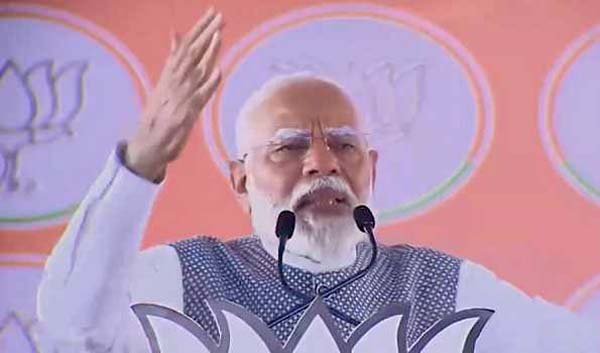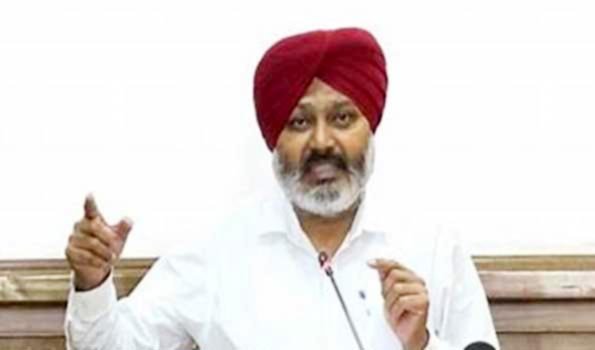By BD Narayankar
Bengaluru, April 28 (UNI) In a series of fiery speeches across Karnataka, Prime Minister Narendra Modi on Sunday launched a blistering attack on the Congress party, setting the stage for what promises to be a charged election campaign for May 7 Lok Sabha polls in the state.
PM Modi’s speeches, delivered in Belagavi, Sirsi, Davanagere, and Ballari, served not only to galvanise BJP supporters but also to outline the party’s key talking points and strategies ahead of the upcoming elections.
The Prime Minister’s criticism of the Congress spanned a range of issues, from law and order to national security. Modi accused the Congress of failing to maintain law and order in Karnataka, citing specific incidents in Belagavi, Chikkodi, and Hubballi.
He highlighted the Neha murder case in Hubballi as emblematic of the Congress government’s alleged negligence and prioritisation of appeasement politics over citizens’ welfare, particularly women.
Moreover, Modi targeted the Congress’s purported engagement with the banned organisation Popular Front of India (PFI), accusing the opposition party of defending the PFI for electoral gains. He underscored the alleged lack of seriousness in handling security issues, exemplified by the Congress’s response to a bomb blast incident at a café in Bengaluru.
The Prime Minister’s critique extended beyond contemporary issues to historical narratives, where he accused the Congress of selective exploitation for political gain.
PM Modi lambasted the Congress for allegedly overlooking the contributions of certain historical figures like Chhatrapati Shivaji Maharaj and Veerangna Rani Chennamma, while engaging in what he described as appeasement politics by not speaking anything against nawabs and sultans such as Aurangzeb, in contrast. His remarks aimed at Rahul Gandhi, labeling him “The prince of Congress,” highlighted the BJP’s narrative of Congress’s disregard for India’s cultural heritage.
Furthermore, Modi’s speeches underscored the BJP’s commitment to development and empowerment initiatives, particularly for marginalised communities like fishermen and tribals. He contrasted the BJP’s efforts with what he portrayed as the Congress party’s neglect during its tenure at the Centre.
The Prime Minister’s addresses were not merely rhetorical salvos but strategic moves aimed at rallying support, framing the narrative, and delineating the fault lines between the BJP and its principal rival, the Congress.
By highlighting issues of law and order, national security, historical narratives, and development, PM Modi sought to portray the BJP as the party of governance, progress, and nationalism, while painting the Congress as a party mired in appeasement politics and neglect.
In doing so, Modi sought to set the tone for the BJP’s campaign in Karnataka, emphasising the party’s vision for the state’s future under its governance. As the campaign intensifies, the impact of Modi’s rhetoric and the BJP’s strategic positioning will become increasingly apparent in the political landscape of the state.











